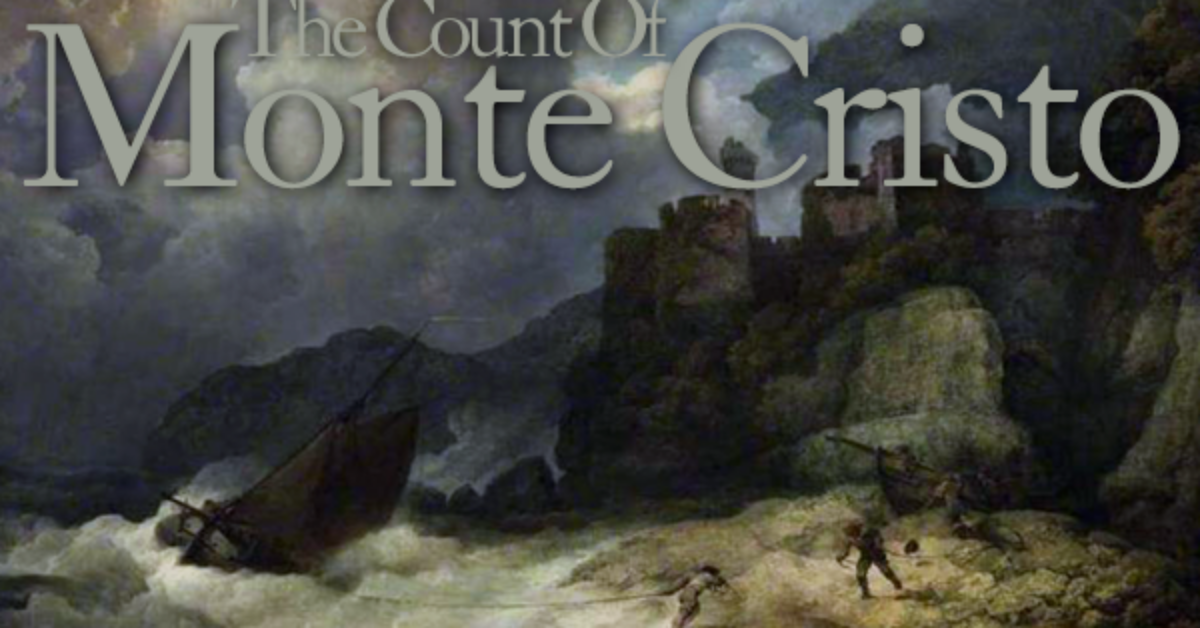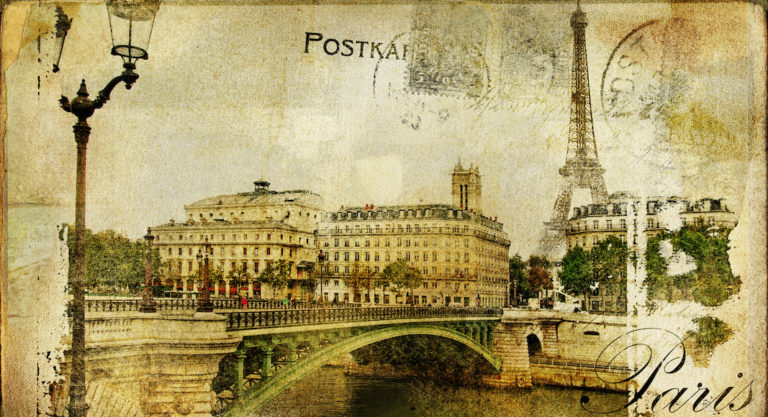When we last left The Count Of Monte Cristo, Edmond Dantès was imprisoned in the Château d’If, an island fortress for the worst political criminals in France, having been put there for the crime of transporting a letter from Napoleon Bonaparte—once and future ruler of Gaul—back from the Island of Elba, which is as far as the letter got before two of his enemies (and one man who considered Dantès his friend) got him locked up by the one crown prosecutor who would fare the worst from the letter’s discovery: Monsieur de Villefort, the son of the Bonpartist agent to whom the letter was addressed.
Dantès is steered into the Chateau d’If in a daze, his head a hot car idling in the cold drafts of the ancient prison, the windshield fogged over in confusion.
Wasn’t this meant to be my wedding night?
Here’s your cell for the evening.
Dripping walls, some straw to pile together for his bed.
Wasn’t Morrel to make me captain of my own ship?
The governor is in bed. Tomorrow he may change your accommodations. Or not.
Some bread, some water, and too little light to see either.
Wasn’t Villefort meant to set this right?
By morning, the fog has drawn closer. Dantès doesn’t know if he’s slept, doesn’t know if he’s hungry. He only wants to speak to the governor.
Instead, he is left with only himself to speak with.
You could’ve jumped from that boat any of a dozen times and made it to shore, escaped France, and called for father and Mercédès.
The day passes with those maddening thoughts.
The next day, the jailor says a prisoner can’t request an audience with the governor—in fact, Dantès’ only option is to knock off asking, get exercise privileges, and hopefully run into the governor in the yard some day.
Dantès doesn’t seem like he wants to exercise.
Oh fine, the jailor says, you’ll go mad that way, like the abbé who lived here before you. That dude used to offer the governor a million francs to free him!
And?
And now he lives in the dungeon.
Dantès, who is, for now, more of a sailor than a businessman, offers the jailor a hundred écus to carry a message to his father and Mercédès.
I’ll lose my job if I’m caught!
I’ll fucking brain you with this stool if you don’t.
We’ll see what the governor thinks about threats!
Good! At least there’s a way to get a message to the governor, after all.
Turns out that he thinks you live in the dungeon now.
Oh fuck.
The mad must go with the mad!
If he wasn’t already, Dantès is starting to go mad.
Meanwhile, Villefort, the shitbag, returns to his dinner party and asks the Marquis to liquidate his government bonds and get him an audience with the King. Totally reasonable request, you lunatic!
Villefort does the Principal-Rooney-run-walking-through-the-school-hallway routine all the way back to his house.
Mercédès is waiting for him.
Can’t discuss your fiancé’s fate or location! He’s a criminal, and I’m a tremendous con! That’s just life, sweetheart!
He barely escapes into his home with his conscience intact. Dropped to his parlor floor by a ton of guilt bricks, all it would take is the voice of his fiancée to make him roll up his crucifixion carnival and do right by Dantès.
No such luck.
Mercédès returns to Les Catalans for her own total collapse and finds Fernand by her side when she wakes.
Morrel tries his best to save Dantès, but he is bogged down by his own Bonapartist past and his apparent employ of a convicted Bonapartist conspirator.
Caderousse drowns his demons in spirits.
Danglars sleeps peaceably, the douche.
Old Man Dantès doesn’t sleep so well.
Some days later, in the Palais des Tuileries, that palace long since burned to the ground by socialist radicals, King Louis XVIII (that’s the 18th; you’re welcome) is making notes in his copy of Horace because he’s about as original a thinker as his name suggests.
The Duke of Blacas is trying to direct his attention to the possibility that there might be—turn your history texts to page 453, please—growing anti-Royalist, Bonapartist sentiment in the southern provinces.
Perhaps Blacas had received a copy of the Politics Almanac from Biff Tanner.
Louis the XVIIIth brings in a baron who has word from Elba: Napoleon is bored nearly to death, going mad, and has been sending any of his loyal men who wish to quit Elba back to France with orders to serve the king.
Oh, sure, bored men on islands in danger of going mad—no need to worry about that lot.
Blacas happens to think otherwise, thanks to a messenger who’s ridden three days from Marseille with news.
The king rightly wants to know why this schlub rode all the way to Paris from Marseille when the telegraph had already been invented.
Blacas says that Villefort—
Villefort, you say?
The same.
Villefort, as in son of Noirtier, the Bonapartist bonehead? Show him the hell in!
Enter Villefort, crown prosecutor and all-France fuckhead, with a story of the Corsican Ogre’s impending departure from Elba with three fully manned ships.
Enter the Minister of Police again: Napoleon has indeed escaped Elba and is marching through France to Paris and his own restoration.
All this by way of telegraph, strangely enough.
Well, then, the death of General Quesnel might have been a murder, not a suicide, perpetuated by Bonapartist agents! We have a description of the man fleeing the scene, yes?
Oh, sure, let me just describe Villefort’s father, who I won’t recognize because I’ve never met him, but Villefort should be duly galled by the description.
All this, Gérard—of course Villefort’s first name is Gérard, that’s the name you give kids if you want them to grow up to be jagoffs—tells his father, as well as the story of Dantès’ letter and of Napoleon’s doomed return.
Noirtier is unflapped—he knows damn well that Napoleon will be heralded by the people. He tells his son to report to the king that Bonaparte is far more popular than His Highness.
“The man whom you call in Paris the ‘Corsican ogre’ and who is still called the usurper in Nevers, is already hailed as Bonaparte in Lyon and as emperor in Grenoble.”
Noirtier was as good as his word and better: the Emperor returned and brushed aside the sitting king.
Villefort holds onto his position thanks to the Bonapartist shadow of his father, although crown prosecutors no longer have a crown to prosecute for—Magistrate de Villefort, then, finds himself having to deal with Morrel.
Villefort only vaguely recalls Dantès these six weeks later, plays the converted Imperial, and gives Morrel a jumbled tour of prisons his employee has most certainly never been inside. He dictates a letter of petition to Morrel, to be sent directly to Napoleon, asking for his release as a devoted Bonapartist imprisoned by the deposed king. And, being France’s worst postman, he doesn’t mail it for Morrel.
Danglars takes Napoleon’s return in calculated stride, until he realizes that it might set Dantès free.
At every moment he expected Dantès to reappear, a Dantès who knew everything, a Dantès who was strong and who threatened every kind of vengeance.
Danglars’ prescience would put hotline psychics to shame. He flees France for Spain.
Both Fernand and Caderousse are drafted into the Emperor’s army.
Old Man Dantès dies in Mercédès’ arms, his funeral and outstanding debts all paid by Monsieur Morrel.
The Hundred Days of Napoleon’s return pass without Dantès catching the slightest wind of it. Not the return, not the civil war, not the final battle at Waterloo. Napoleon relocates from island to continent to distant island, while Dantès remains on the same island near Marseille for all hundred days.
So, a year after the XVIIIth reclaims the throne for the IInd time, the inspector general of prisons visits the Chateau, asking after his charges.
They replied unanimously that the food was execrable and that they demanded their freedom.
He and the governor deign to visit the dungeons, where Dantès is enjoying the single ray of daylight that comes into his cell. Dantès takes the opportunity to ask just why the hell he’s in jail—imagine that, this “most dangerous of conspirators” only asks to be judged.
The inspector promises to review the notes on his imprisonment, and Dantès tells him that M. de Villefort’s word can be trusted absolutely.
Oh sweet, true Dantès.
They visit the mad abbé, Faria, who predictably offers part of his vast fortune in exchange for his release. The poor bastard doesn’t even know Napoleon has been exiled and returned and exiled again since his jailing eight years ago. The mad bugger, in fact, assumes Napoleon has taken all of Italy by now, instead of a small island in the south Atlantic.
Dantès turns dark when nothing comes of the inspector’s visit, turns to God, turns to rage, turns suicidal. He stops eating, starts dissipating, until one day, when he hears burrowing inside his wall—another prisoner, tunneling out. Dantès, weak though he is, starts digging. He crafts makeshift tools out of broken plates, bolts, whatever he can until, at long last, he hits a beam. He hears the other prisoner—the abbé.
It turns out they’ve both been digging in the wrong direction to reach the outer wall of the prison. The abbé wants to know how old Dantès is—but Dantès himself isn’t sure. He was nearly nineteen when he was imprisoned in 1815. The better-informed abbé does the math.
“Not quite 26,” the voice muttered. “Very well, then: at that age, men are not yet traitors.”
The abbé instructs Dantès to cover his hole (!) and await his signal.
Days later, a man emerges from the tunnel like it’s no big deal to just emerge from tunnels in prisons. El Chapo? No: Abbé Faria. A short man in his mid-60s, Faria has been in one prison or another since 1808. Dantès tells him of his beloved Emperor’s fortunes.
“It is just as in England: after Charles I, Cromwell; after Cromwell, Charles II. Then perhaps after James II, some son-in-law or other, some relative, some Prince of Orange, a Stathouder who will appoint himself king. And then: new concessions to the people, a constitution, liberty! You will see all this, young man.”
One thing at a time, abbé.
The Italian priest claims to have been the architect of Bonaparte’s plans to unify Italy from a collection of provinces into, well, Italy—a full fifty years before the country became a country—and that Napoleon had a son, already dubbed the King of Rome.
Over some time, the two share their life stories and expertise, and since Dantès comes up short in the exchange, he offers Faria the devotion of a son and protégé in return for receiving the combined wisdom and knowledge of the abbé: foreign languages, books committed to memory, philosophy, and the sciences far beyond the making of digging tools from items found in your standard dungeon prison cell and paper and rope from bedding.
The abbé unpacks the true nature of Dantès’ imprisonment, his altogether sane mind seeing the four villains’ parts for what they were—even that Noirtier was (and indeed is) Villefort’s father. Hell, he knew the guy!
All told, the relationship is positive. They begin to dig again in earnest until Faria has a seizure, something of a genetic problem inherited from his father, so he knows exactly how it’s all going to pan out: seizure, a look of death, a drop of cure, and eventually, a return, however diminished.
How diminished: the abbé is severely disabled, partially blind, and definitely unable to help finish the tunnel or escape.
Dantès could finish himself and escape, but he says he is determined to escape with his mentor, even though the abbé is clearly going nowhere.
That act of fidelity is the reason Faria finally tells Dantès about his treasure. He recounts a intricate tale of intrigue among the Borgias and Italy’s caridnals, of a fortune hidden from conspirators that Faria alone can uncover: two million Roman écus, at least, buried on the island of Monte Cristo.
Even still, Dantès will not leave Faria behind. Their tunnel is nearly discovered during renovations on the ancient fortress, and the abbé has another crippling seizure—the last one, according to Faria, that he will ever suffer.
Dantès still won’t hear of it.






